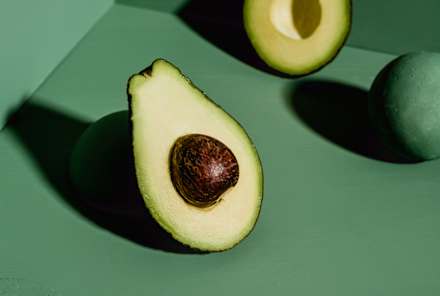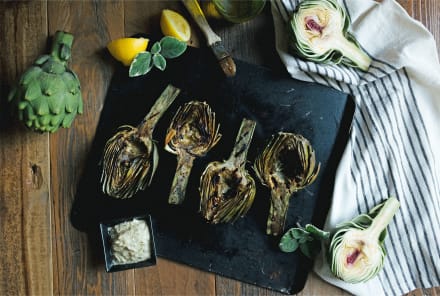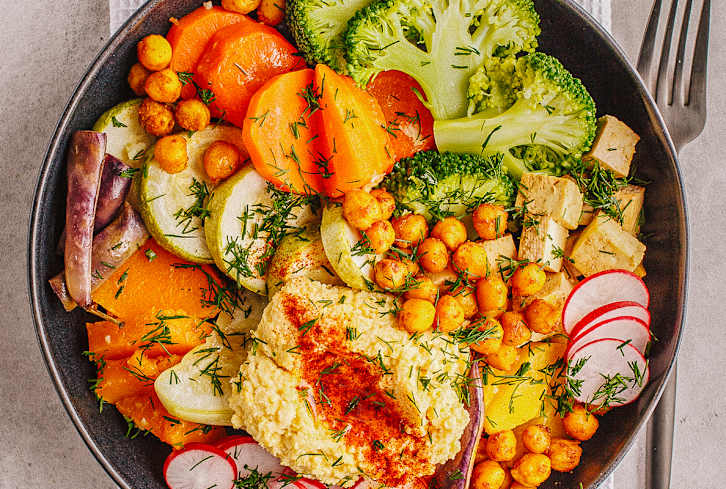Advertisement
How To Save $2,000 A Year By Cooking

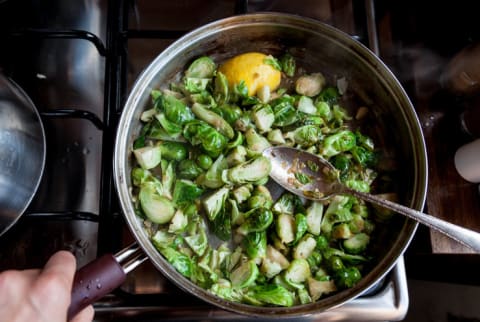
What would you do right now if you had extra $2000 in your pocket?
Turns out, the average American is spending $151 per week on her food bill, which works out to almost $8000 a year. But according to Natural Resources Defense Council, 25 to 40 percent of that is being tossed out.
That’s not only $2000 every year from our paychecks, but a whopping $165 billion worth of wasted food across the country. That’s more than double our nation’s discretionary spending on education! And just 30 percent of that would also feed our country’s 50 million food-insecure people.
In September, the USDA and the Environmental Protection Agency announced the country’s first-ever national food waste reduction goal — calling for a 50% decrease by 2030.
They also released the Food Recovery Hierarchy, an upside down pyramid showing the best ways to reduce waste in order of importance. With source reduction (e.g. portion size, buying too much at the grocery store) at the top, followed by feeding the hungry, feeding animals, composting and finally landfill/incineration.
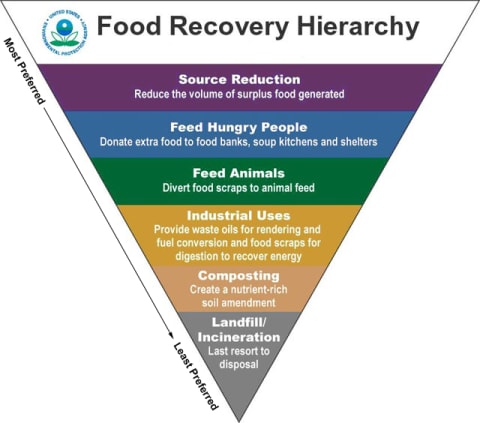
This November I took a #NoFoodWaste pledge to consciously eliminate any of my own food waste. And it turns out hundreds of other people and organizations decided to do the same, sharing very practical and creative ways that we can be more responsible with our food.
Below are some of the best tips I've come across to help us reduce food waste.
1. Cook ripe and overripe fruits and vegetables to eat later.
Try roasting older tomatoes in the oven and pureeing them into a soup. Can’t eat all of them? No problem. Home cook Jennifer says to, “place them in freezer bags until desired.”
2. Cook beans from scratch.
Certified health coach, Arielle, had a surplus of beans from her soup, so she decided to sprinkle some on top of this pizza she made from scratch.
3. Season with citrus skins.
Follow healthy food chain Dig Inn’s lead and toss those orange or lemon peels into your Brussels sprouts dish for added flavor. By doing this, Dig Inn has saved 525 pounds of orange peels from going directly into the compost!
4. Grow your sprouted onions and garlic.
This red onion sprouted before I could eat it. Instead of composting it, I removed all the edible parts and then placed the sprout and roots into a giant pot with some sprouted garlic and eyed potatoes. These will just regrow and you can eat them again!
5. Eat your ugly veggies.
Have you ever gone to the farmers market and seen those imperfect veggies and fruits? Go ahead and grab them.
Not only are they weirdly photogenic, but they are just as delicious, and they are more likely to go to waste if the farmer can’t sell them.
6. Eat the whole veggie, even when you probably think you can’t.
The folks at Skylight Farm are a wealth of information when it comes to using the whole vegetable. Sauté your beet greens, crisp up fennel and leek roots in a pan, make carrot top pesto, and steep Thai basil flowers for a tea or in soups and stews.
Want more info? Check out:
- An Easy 1-Day Vegan Meal Plan (On A Budget)
- How Anyone Can Eat Healthy On A Tight Budget




